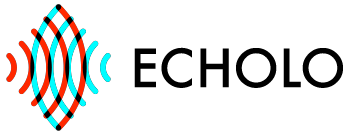
The Internet of Things is much more than attaching sensors to things and controlling them through the internet. The concepts of IoT holds long-term application capabilities as our day-to-day lives are influenced by smart technologies and people are investing brains to make them a reality, which can only be accomplished by IoT. In the next five years, IoT platforms will manage the interoperability of around 25 billion newly connected devices and sensors along with collecting their ~44 zettabytes of generated data.
Transporting Seafood
A logistics company is transporting seafood long distances in refrigerated trucks. They transport the seafood with the utmost care because the seafood may spoil if not handled properly during the transit. To guarantee service and quality seafood the company makes an agreement with the merchant that if the seafood spoils during transit, then the company needs to compensate the merchant.
Therefore, the following parameters are imperative to avoid losses;
- Temperature: The seafood needs to be frozen to maintain its highest quality.
- Humidity: Important to avoid thawing of frozen seafood.
- GPS Location: To track the truck.
- Door Sensor: To alert the company if the truck door is opened.
- Human Presence Sensor: To check any human presence in the container of the truck.
 The company can solve the problem efficiently using the Internet of Things technology. They can embed temperature/humidity & motion sensors to the truck container, which collected and sent data to an IoT Hub (like Azure or AWS) for analysis. The sensors help track whether the temperature and humidity are under specified conditions, the container is traveling the specified route, the door is not opened during transit, or there is a human presence in the truck container. Once this sensor data is transmitted to an IoT hub it can be acted upon in real time, for example; If the door is opened before arriving at the final destination an alert can trigger sending an email, text, phone call or other to the appropriate people. This can save the company from delivering a bad product before it ever reaches the merchant. If a merchant makes any claims about the quality of the fish, the company will analyze the data collected and find out the exact reason behind the spoiled seafood.
The company can solve the problem efficiently using the Internet of Things technology. They can embed temperature/humidity & motion sensors to the truck container, which collected and sent data to an IoT Hub (like Azure or AWS) for analysis. The sensors help track whether the temperature and humidity are under specified conditions, the container is traveling the specified route, the door is not opened during transit, or there is a human presence in the truck container. Once this sensor data is transmitted to an IoT hub it can be acted upon in real time, for example; If the door is opened before arriving at the final destination an alert can trigger sending an email, text, phone call or other to the appropriate people. This can save the company from delivering a bad product before it ever reaches the merchant. If a merchant makes any claims about the quality of the fish, the company will analyze the data collected and find out the exact reason behind the spoiled seafood.
Without an IoT system in place, the company might suffer losses if a merchant makes any false claims by saying that the seafood is spoiled during the transit. The company will also be blind to the fact that there may be an issue with the trucks cooling system or even some bad practices taking place. The entire solution is one for not only the company but is a quality check for the end merchant. The merchant now knows that they are always getting a high-quality product.
Identify bad habits or maintenance issues early
The IoT solution above can now help the company identify potential training issues if they see the driver stopping too often or for too long or maybe opening the container door and moving the product around. This can cause unexpected things to happen like humidity or temperature to rise too high causing the seafood to spoil or become unsafe.

The next potential use case is the ability to log and analyze days, weeks, or months of data to see if the truck may have a cooling or insulation issue. If the compressor is on to often and the external temperature is not extream it could indicate an issue. This type of issue could be auto-detected based on parameters set up using an “If this then that” model, giving the maintenance staff a heads up.
Connect with us
An IoT enabled end-to-end solution will collect data from sensors, store it, analyze it, and visualize it. The insights we get from the data collected will help to improve the entire system and process, thereby improving the systems operations, transparency, profitability, efficiency, and customer satisfaction. Connect with us at Echolo, to let us help you with your next highly effective IoT solution.



Pingback: Use IoT to Predict Failure – Echolo